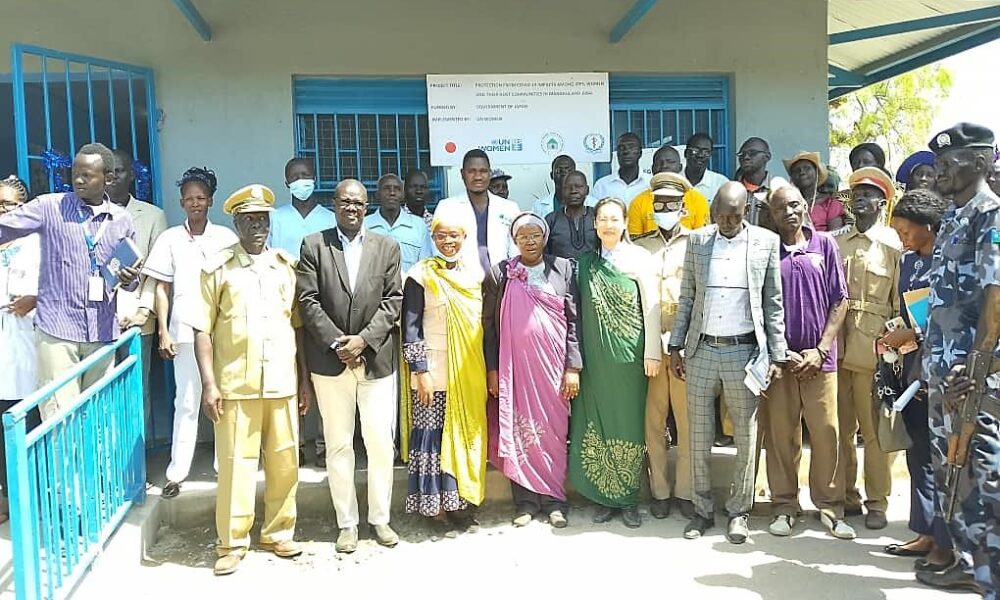By William Madouk
Residents of Mangala Payam in Central Equatoria State have endured a lot, including boarding private cars during emergencies at night to reach a nearby healthcare facility for medical services in Juba.
At least on Thursday, the residents breathed a sigh of relief when things took a different turn for the better.
To the joy of the residents, Action for Sustainable Empowerment and Management Organization (ASIMO) handed over a renovated Mangala Primary Healthcare Centre (PHCC). An achievement which has been gained through support and funding from UN Women and the government of Japan.
Mrs. Esther Kaku Jacob, who spoke on behalf of Managla women, said before the facility was refurbished, residents used to face a lot of challenges, especially with emergencies during the night.
“Before the health facility, night emergencies were so difficult; however, after renovation, it became easy because staff at Mangala PHCC could do the needful,” said Kaku.
“All wards in this PHCC had holes and spider webs over the ceiling, and the heat was unbearable, but as you can see, they are fixed and fans are installed inside wards,” she noted.
She added that the healthcare facility is generally nice, to the extent that staff are now putting on a smiley face.
Mrs. Kaku also highlighted some of the challenges, for instance, inadequate maternity wards, family planning rooms, toilets, and a lack of ambulances for referral cases, including the PHCC fence.
Addressing the gathering during the handover ceremony, Central Equatoria State Minister of Health, Najua Juma Mursal, said the healthcare centre would help thousands of host communities and IDPs.
“The Mangala healthcare facility is now renovated; it is now in good shape. This facility is going to serve more than 48,000 people in Mangala because the nearest healthcare facility is only in Gumbo,” said Mrs. Mursal.
“We are going as the ministry of health to introduce more services,” she added.
According to her, the Mangala PHCC is far better in human resources because it has about 21 staff with only the challenge of drug supply.
She appreciated the UN Women, the Japanese people, and the government for their firm support.
Meanwhile, Tomoko Watanabe, the Deputy Head of Mission for the Japan Embassy in South Sudan, said that with this particular project, he hopes that IDPs and the host community will get health services.
She said Japan is exerting effort to support people’s lives, especially vulnerable women and children.
Mr. Mathew Lobiri, deputy director of Mangala PHCC, called on Mangala residents to cooperate with staff.
He advised the inhabitant to provide staff with a plot to build their own Tukuls, adding that renting could drain their pockets.
Also, the Deputy Representative for UN Women, Rukaya Muhammed, encouraged Mangala women to stand firm against gender-based violence (GBV), adding that nothing should stop them from pursuing their dreams.




